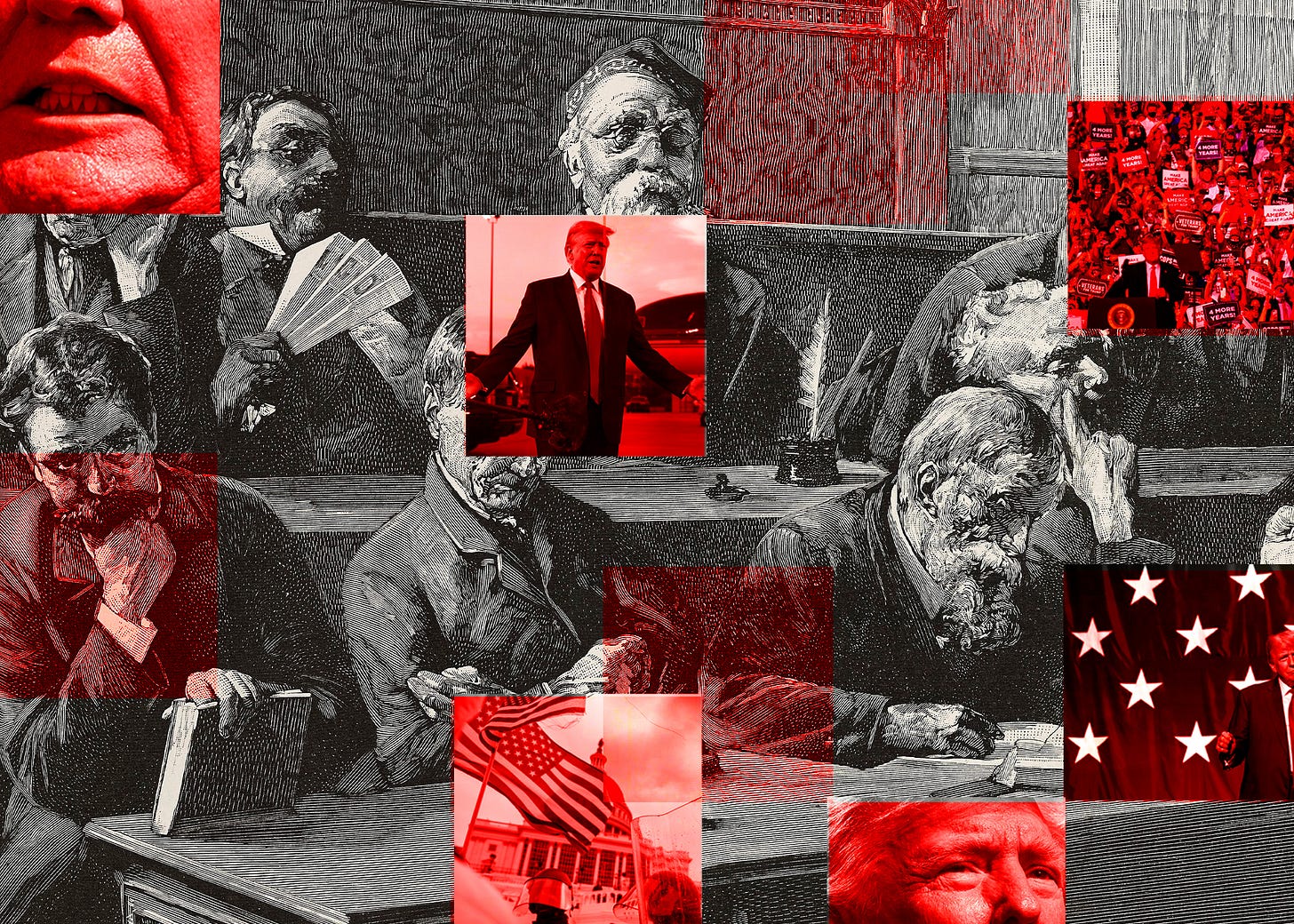Good Luck Finding “Impartial Jurors” for the Trump Trials
People know a lot about Trump and his alleged crimes, have strong feelings about him, and worry about Trump tampering with the jury (and witnesses).

IT’S NOT TOO EARLY TO START ASKING what kind of jurors might be seated for a Trump criminal trial, and what concerns might be weighing on their minds.
We did exactly that when we focus grouped 11 North Carolina Trump-to-Biden voters, most of whom embody a contradiction. All of them told us on December 12 that Donald Trump can get a fair trial in his upcoming criminal cases—but only two say they personally could judge Trump fairly if, hypothetically, they were jurors.
In short, they seem confident that other random Americans will be able to perform a task they themselves are unable to perform.
In conducting these focus groups, we uncovered two reasons why seating an impartial jury will be extremely challenging: First, prospective jurors are too knowledgeable to be unbiased. Second, jurors worry Trump will twist the process to achieve his ends.
Regarding their own personal biases, respondents told us:
“I’m biased already,” said Shane, 48, from Mt. Holly, North Carolina. “I have my opinions of him already, and I don’t think any trial, depending on what the topic is, is going to change it. I’d be swayed for sure. I’d be excused.”
“I know too much. I’ve seen too much,” echoed Danielle, 47, from Winterville. “Beyond being a woman, being a person of color, seeing the things that have gone down—January 6th. It’s a lot. I would just say that I know for a fact that I could not [judge Trump fairly].”
Lexxi, 38, from Monroe, offered this: “For one, I am a woman. I am originally from the tri-state [New York, New Jersey, Connecticut] area, and I have been aware of the things that Trump has been doing for the last 40 years.”
As a testament to how biased these hypothetical jurors actually are, eight believe it would be a good thing for America if former President Trump were convicted and sent to prison before the 2024 election. That’s not what lawyers (or judges) want in impartial jurors.
The problem gets worse.
Nine of the twelve believe that former President Trump will attempt to tamper with the jury in his cases, and 10 say he will use social media to imply that jurors who vote to convict him will face the anger of his supporters. Ten admitted they would be “afraid” to serve on a jury in a Trump criminal case.
Michael, 40, from Charlotte, remarked, “[Potential jurors] might just be a little worried about someone contacting them from the outside to influence them. [Trump] knows a lot of high-profile people. Who knows who he could hire to keep an eye out on you and what you think and what your life's about, to see what you're thinking.”
Amber, 58, from Winston-Salem, said she was worried about “intimidation, even before the verdict, [and] inadequate protection.”
“I definitely feel there are a lot of extremists that if I’m found to be part of the jury that went against [Trump], that somebody would take recourse,” added Scott, 43, from Charlotte.
John, 61, from Wilmington, said, “I would be concerned and wary [of being] in danger of threats or death threats, or any kind of threat by any Trump supporters, and my personal information being exposed or put out in public domain so that I could be contacted and harassed in any way.”
A reminder: All 11 of these respondents voted for Trump in 2016.
The people in our group believed that convicting Trump carries risks for civil order.
“It’s probably going to set off something, but it’s not going to be a second civil war,” commented Lexxi.
“Riots, violence, unrest. We’ve seen January 6th and what happened to the Capitol building—maybe similar types of things,” remarked John. “Hopefully, there would be preparation for it to mitigate that, but there would be some backlash and some protesting and even violence.”
Bonnie, 64, from Cary, argued, “The laws should be for everybody, and Trump's just trying to say that because he is the president, he can be excused for whatever he did as president. That's not how the Constitution is written. At some point, we have to draw a line in the sand and stand by that line in the sand.”
That’s a good point. The only problem is that believing it might be disqualifying for a juror tasked with upholding the law.





